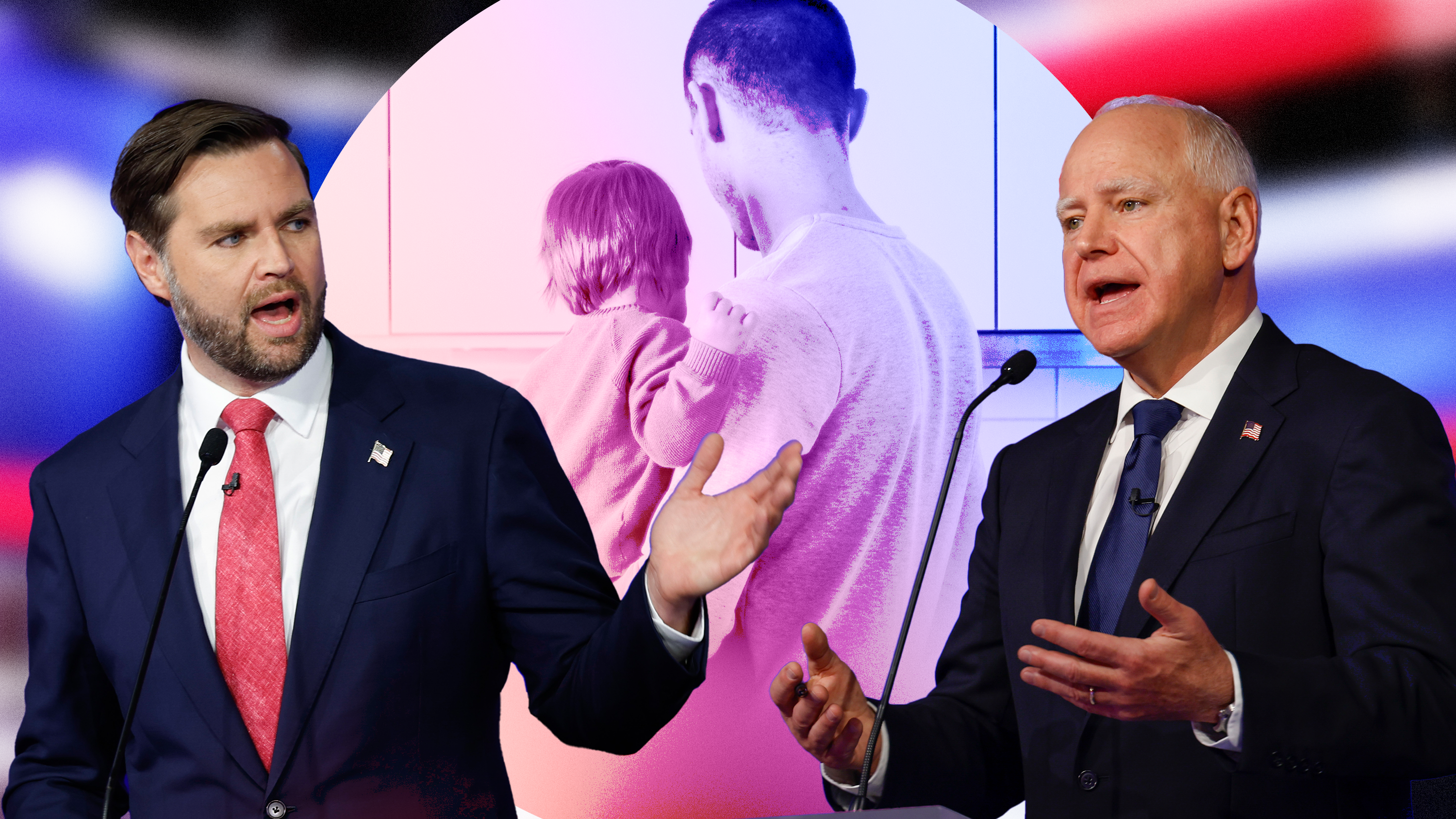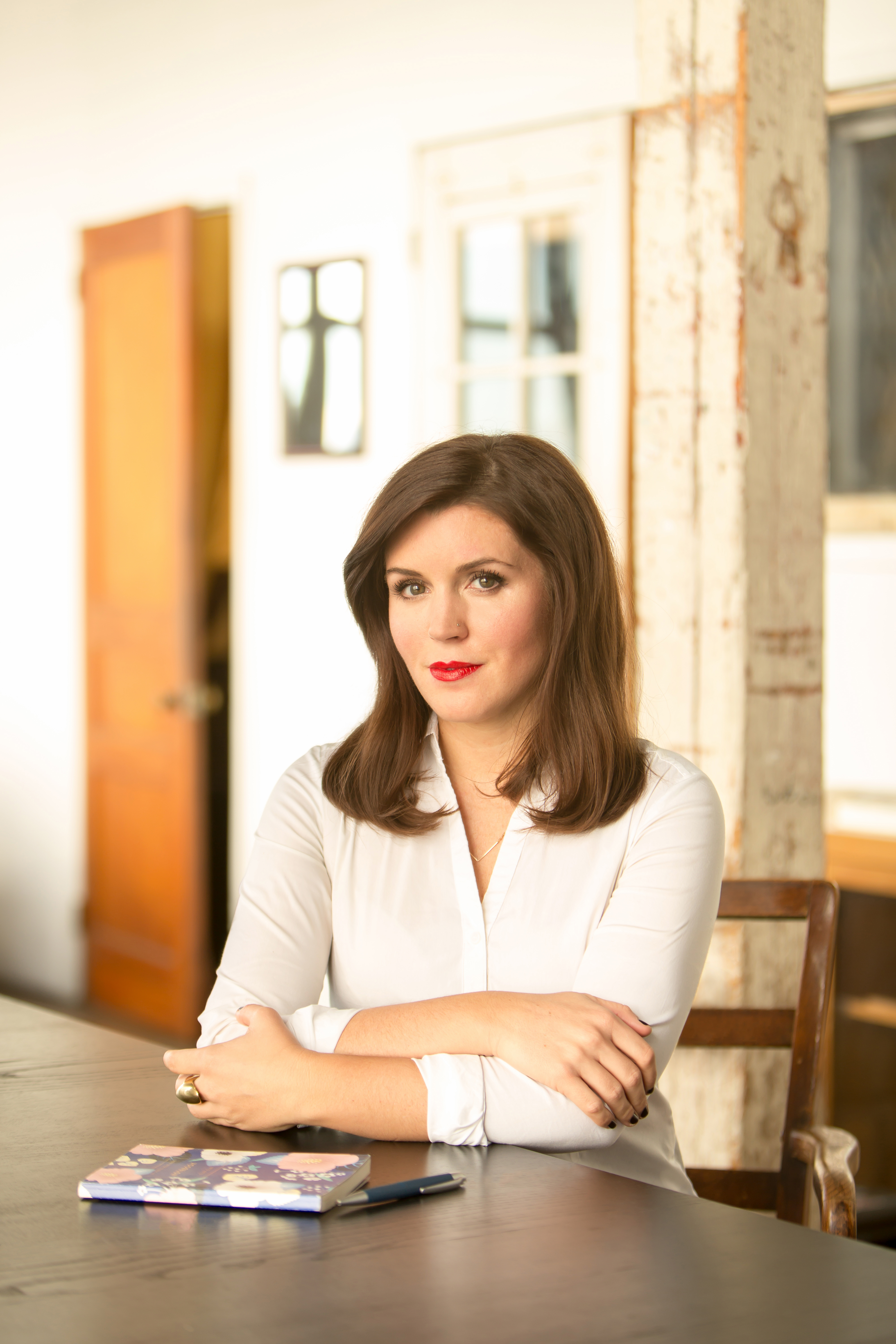Childcare Is A Men's Issue, Too
Last night's vice presidential debate between Tim Walz and JD Vance revealed that only one of the candidates has a plan for paid family leave that factors in what women really need.


On Tuesday night, vice presidential contenders JD Vance and Tim Walz squared off on the debate stage, addressing everything from Israel and Palestine to climate change to abortion rights. But one question was more revealing than any other: What each candidate would do about the national childcare crisis, and how they would address the need for paid family leave.
What their answers revealed: While both men are fathers, only one of them believes that childcare is a father’s issue, too. The other seems to think taking care of children is women’s work, and childcare a problem for women to sort out.
Walz has called childcare and paid family leave a day-one priority. At the debate he said childcare “is the biggest issue” for Americans. And he spoke about his own experience, saying he had to go back to work just five days after his child was born—a travesty that encouraged him to make things different for other new parents by implementing a more robust paid family leave program in his state of Minnesota.
While both men are fathers, only one of them believes that childcare is a father’s issue, too.
Vance also claimed to “speak from this personally.” But he didn’t speak personally at all; he immediately segued into talking about his wife, Usha, noting that “being a working mom…is extraordinarily difficult” and lamenting the “cultural pressure on young families and especially young women” to choose between work and family.
This moment was particularly telling. Vance, after all, is the working father to those same children whose care was apparently extraordinarily difficult for his wife. He, too, had to make decisions about work, family, and childcare. And it seems like the choice he made was to put all of it on his Usha, because there was no anecdote about the “difficulties” he has faced as a working dad.
Vance is right that childcare is an issue that makes life harder for women in particular. But that’s in part because men like Vance don’t see caring for their own children as equally their responsibility, and because too many (mostly male) politicians view childcare as both women’s work and a personal problem for women to sort out.
At the debate, Vance talked about supporting a childcare model that gives families as much “choice” as possible. But when Vance has talked about childcare in the past, he’s been clear that he doesn’t think fathers factor in, and that the “choice” he’s talking about is incentivizing women to stay home, or relying on other (largely female) family members to provide childcare for free. “I think one of the things that we can do is make it easier for families to choose whatever model they want, right?” he said at a conservative event this year. “So one of the ways that you might be able to relieve a little bit of pressure on people who are paying so much for day care is…maybe grandma and grandpa [want] to help out a little bit more, or maybe there’s an aunt or uncle that wants to help out a little bit more. If that happens, you relieve some of the pressure on all the resources that we’re spending on day care.”
Get exclusive access to fashion and beauty trends, hot-off-the-press celebrity news, and more.
The Federal Reserve says parents will spend nearly as much on childcare as they do on housing each month.
In a previous podcast interview, he put a finer point on it: After telling a story about how his mother-in-law took a leave of absence from her job to help raise Vance’s children, the podcast host opines that raising grandchildren is “the whole purpose of the postmenopausal female.” Vance agrees.
Debate moderator Margaret Brennan noted that “the Federal Reserve says parents will spend nearly as much on childcare as they do on housing each month.” Indeed, many more of these families are headed by single mothers than single fathers; even many two-parent families calculate childcare costs only against the mother’s income (how many times have you heard a woman say she quit her job because childcare costs as much or more than her pay?); and in many homes, it’s still mom who is responsible for most of the care-giving and most of the care-wrangling.
And that’s precisely because there are too many men like Vance and too few like Walz, both in American homes and in the halls of power.
Jill Filipovic is a lawyer and journalist who covers gender issues, politics, and global affairs.
